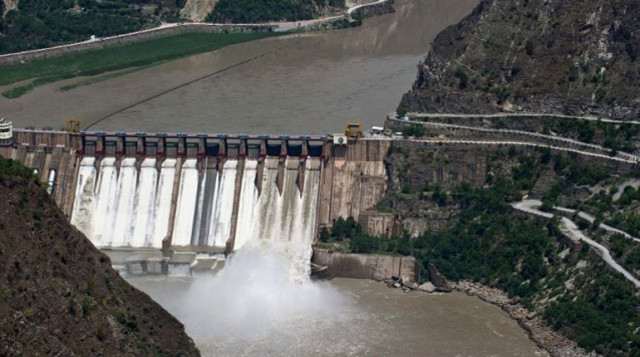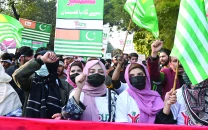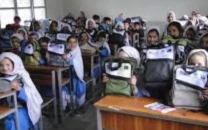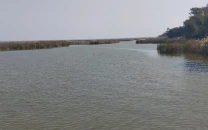India to lose if it breaches water treaty: minister
Urges Modi govt to stop politicising water issue

The treaty was brokered by the World Bank in 1960. PHOTO: AFP
Speaking at a national consultation on ‘Pakistan’s Water Challenges’, she said that the government was formulating a comprehensive strategy to deal with challenges facing the Indus Waters Treaty.
Dar says World Bank move jeopardises Pakistan’s water rights
“India itself will suffer if it violates the Indus Water Treaty … Instead of politicising the issue, it must adopt a policy of dialogue,” she said.
The treaty was brokered by the World Bank in 1960, which survived three wars and many bouts of tensions between the two neighbors. It governs the distribution of water from six rivers between Pakistan and India.
The treaty’s fate is uncertain ever since Indian Prime Minister Narendra Modi threatened to ‘review’ it in the wake of simmering tensions between the two countries.
Pakistan, however, is adamant that India cannot unilaterally revoke the water accord.
Recently, the head of WB visited both Pakistan and India to ensure that the situation did not deteriorate.
The minister of state said that the government believed in reaching out to its neighbors, including India. “We want amicable solution to all problems with India,” she said, adding that despite Indian belligerence, Pakistan was showing restraint and acting in a responsible manner.
Pakistan will not accept external pressure on Indus Waters Treaty: Asif
Aurangzeb pointed out that both countries’ economic progress was linked with the treaty.
She said that Prime Minister Nawaz Sharif believed in politics of consultation and reconciliation. “Therefore, he will consult with all political parties on water issues,” she said.
After 17 years, she said, the government had decided to carry out census this year because it was crucial for assessing population and devising strategies to overcome challenges.
Published in The Express Tribune, February 9th, 2017.



















COMMENTS
Comments are moderated and generally will be posted if they are on-topic and not abusive.
For more information, please see our Comments FAQ